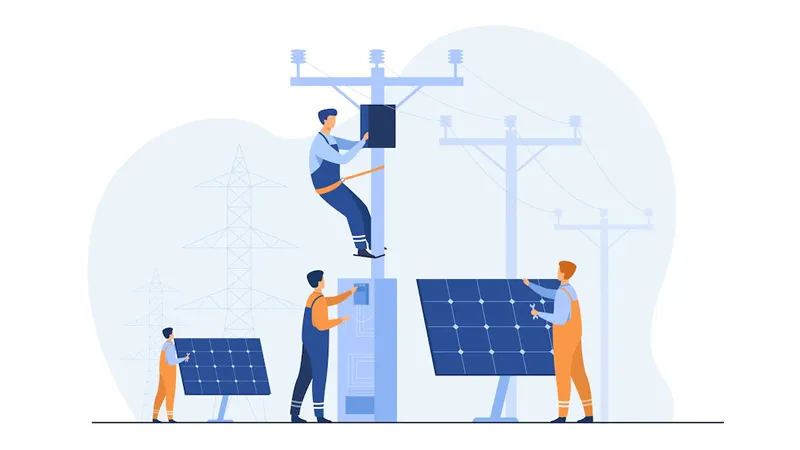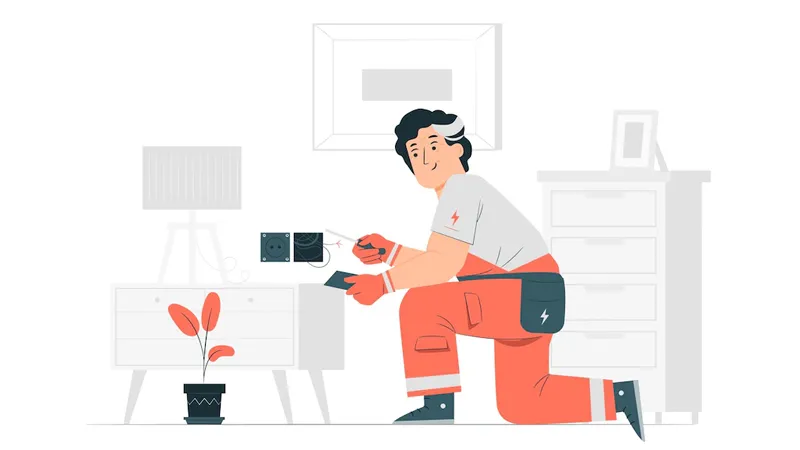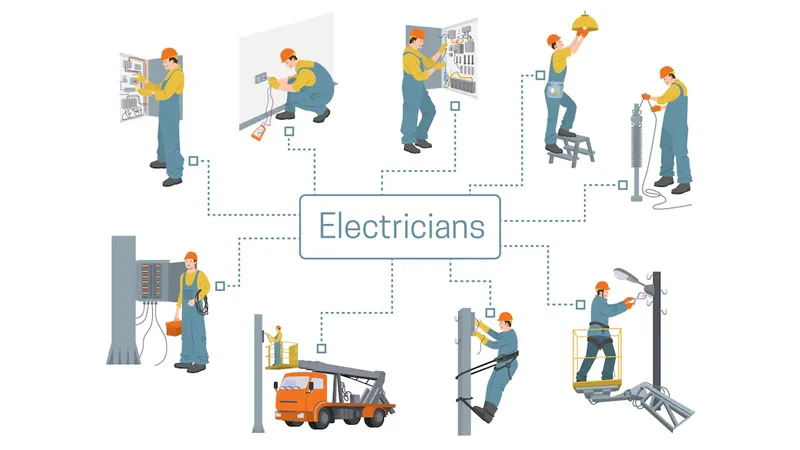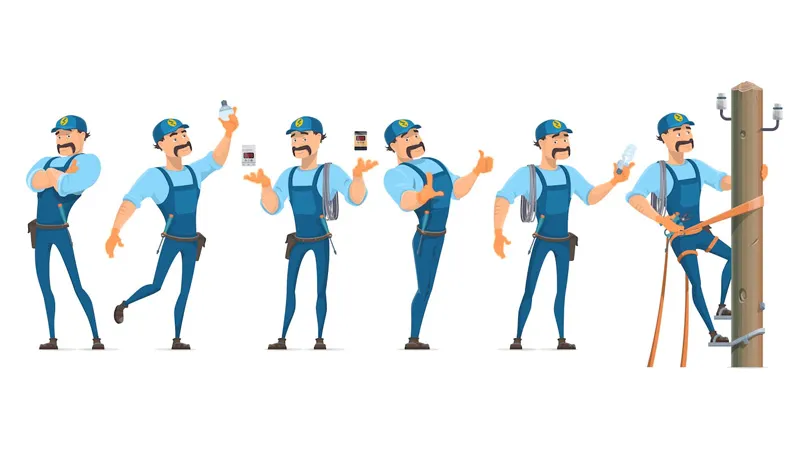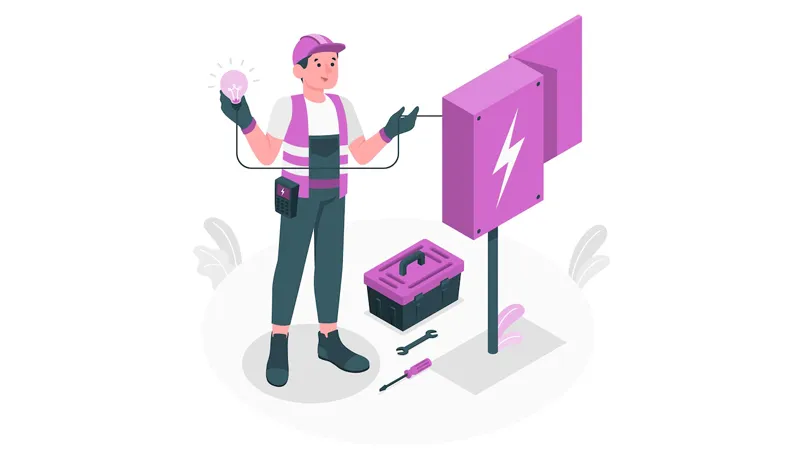Personal Development
Why Do You Want to Be an Electrician? Job Interview Q&A
Why do you want to be an electrician? It’s time to demonstrate to the interviewer why you’re enthusiastic about your profession as an electrician. Even if you aren’t a fully qualified electrician, you can answer interview questions with your personal experience to let the interviewer get to know you better.
But how can you make it seem more personal and relatable?
That’s what we’ll discuss here today. First, let’s look at some clever ways to demonstrate your professionalism, but in a way that will make you a likeable, relatable character rather than a command-taking robot.
Table of Content
Why Do You Want to Be an Electrician?
When asked, “Why do you want to be an electrician?” you can straight-up answer the question with valid, well-structured bullet points.
But, question yourself, although bullet points are fine, do you really appreciate them?
Take, for example, an exam paper. We’re going to answer a descriptive question about the current economic situation. More often than not, we’re going to memorise some bullet points and then tie them up with stories that describe them, right?
Turns out, we humans like stories. That’s why we keep going back to them over and over. If you watch Ted Talk, you’ll often see that they employ stories to present their cause to us. Look at the following video.
The key points of the video are given by a commenter below:
“
1. Tailor your talk to the audience and context. Why do they care?
2. Share why you care. Examples from your work experience.
3. Aim to transform the audience beyond just informing. Change what your audience knows, but also what they believe, feel, and do.
”
So, what is this “tailoring”? Well, at the job interview, your audience will be your potential employers. So when they ask why you aim to work as an electrician, you’ll have to present the facts as if they are intertwined with your life.
Even this article from Harvard Business Review agrees with us. With stories, you’ll increase your chances of being hired many fold.
Now that this is clear, let’s move on to what drives people to become an electrician these days.
Salary
You should never select a job based on how much money you’ll make. Instead, you should be enthusiastic about what your profession will help you to accomplish in your life.
But, in the end, money does play a huge factor in our decisions throughout our life. However, if you tell your employer that you’re in it for the money, chances are that you’re eliminated right then and there.
Instead, you could cushion the message with a story. For example, you can say that the payscale that you saw on Payscale.com first piqued your interest in becoming an electrician. But, it later turned into a passion for various reasons. Then tie your story with these reasons in a neat manner, keeping the flow of the story undisturbed.
Job Security
Then comes job security. Electricians will always be in demand. Robots or no computer programme can ever replace them. Instead, it’s the reverse. As we become more dependent on technology, the demand for electricians will only increase.
But, if you just plainly say that job security brought you to this interview, you’ll likely never get a call back. So, you need to be smart about it and employ a strategy as discussed above. Tell them that you initially became interested because of the job security. But then your passion kicked in and showed you that you belong here and want to build a career out of it.
Being Your Own Boss
This is also one of the biggest reasons why people choose trades like becoming an electrician. But you cannot say that to the face of your interviewer or hiring manager. That’s a big NO-NO.
But rest assured that your interviewer is aware of it. If you want to bring it up to demonstrate that you can hold up your own and you have leadership skills, then cushion the message with some witty comments.
For example, you can tell them that you initially looked to make a business out of your profession because of the fulfilment it gives you. But you soon discovered that being a person of the success stories of other people and organisations is equally fulfilling, if not more. You can tie in a practical example here for authenticity.
Develop Your Team to Lead The Industry
Get fully accredited thousands of high quality online courses taught by the world’s leading experts suitable to companies of all sizes.
Trick Questions and Answers
So the earlier topic sums up one of the most relevant questions that you will face in your interview. Your interviewer may even switch to another version of the question, but the answer is still the same. They may even break it up in chunks.
However, aside from obvious questions about your trade, skill level and passion, they may ask you some trick questions to see if they can eliminate you. So, let’s give you a few examples of those.
How Do You Handle Tasks You’re Not Good at?
NEVER answer this question without any thought. It’s a trap. If you can’t identify why your interviewer is asking you this question, always retreat to the safe side. Bring up the following points:
- You are already looking for opportunities and training (such as relevant electrician courses and/or electrical engineering courses) that can patch up your shortcomings.
- You’ll take the help of your skilled colleagues as there are dangers (like high voltage electric shocks) for both you and your client.
You can add more points that can further demonstrate your professionalism and understanding of your trade.
Do You Like Working Alone or With a Team?
Your employer will surely have people of different colours, ethnicity, religion and so on in their office. They’ll never hire someone who cannot mix well with others and has the tendency for working independently, no matter how skillful they are.
So, never present yourself in the wrong light. Instead, demonstrate that you are a team player, and if you can, show them proof of some of your leadership skills, and they might even consider you for a senior position.
What Type of Job Do You Like Most?
Employers want people who can adapt fast, no matter the setting. For example, if you’re uncomfortable working in a particular setting, your employer may immediately see it as a red flag.
So tell them why you think bias is wrong for an electrician and how this realisation helped you adapt to any situation you’re presented with.
How Do You Handle Setbacks in Your Career as an Electrician?
We all make mistakes. However, the success of your career depends on your ability to handle these setbacks. Your employer will never hire someone who can’t handle failures.
So tell them of a practical scenario of a setback which helped you learn from your mistakes and how those lessons helped you grow as a professional.
How Do You Handle People Who Cannot Provide Constructive Criticism?
This is another trick question. If you throw someone under the bus here, you’ll likely immediately draw a negative picture of yourself.
Instead, reframe their question. Tell them that every criticism is a chance to get some feedback. While empty noises never help someone, we should still consider them as there could be some useful feedback from the noise.
Where Do You See Yourself 5 Years From Now?
If you say something silly like “you want to open a business of your own” or “you want to move on to a more prominent organization,” you’ll likely be red-flagged.
Your interviewer will presumably invest in training you. They will want you to stay for a significant time. If they sense that you have the habit of jumping ships often, they’ll probably never consider hiring you.
Top Courses of this Category
FAQs
What questions do they ask in an electrician interview?
Please read the sections under the headings Why Do You Want to Be an Electrician and Trick Questions in the blog.
What qualities do you need to be an electrician?
In addition to skills that are specific to your trade like inspection and testing of electrical components, you’ll also need soft skills like problem-solving, time management, team management, etc.
What hard skills do electricians need?
The most common hard skills of an electrician include:
- Inspection and testing of electrical systems, equipment, and gadgets.
- Installation and upkeep of these things.
- Skills in using hand and power tools, such as screwdrivers, pliers, and drills, must be used and maintained.
- Wiring system repair.
- Putting in electrical conduits, wires, and tubing.
How do you know if being an electrician is right for you?
If you have a natural tendency for critical thinking and problem solving, becoming an electrician is probably one of the best options for you.
Why you shouldn’t be an electrician?
If you absolutely hate working odd hours, becoming a trade person like an electrician may not be a good choice for you.
What is difference between AC and DC?
Electric current flows in two forms: alternating current (AC) and direct current (DC). In alternating current, the current alternates between forward and reverse flow. Direct current flows in a single direction continuously.
Do you need to be smart to be an electrician?
If you’re reasonably good at maths, you’ll likely do fine as an electrician.
Is electrician hard on your body?
No. Some other trades like plumbing may be physically challenging. However, electricians are relatively safe from being subjected to difficult physical conditions.
Is electrician a good career UK?
For many years, there has been a scarcity of competent electricians in the United Kingdom.
At what age do most electricians retire?
According to the data from The International Brotherhood of Electrical Workers (IBEW), 53% of its members retire at the age of 62.
Conclusion
So, why do you want to be an electrician? Because you love the job. That’s what your employer wants to hear. They will go to great extents to figure out if what you claim is valid and if you have the capacity to work in a professional setting.
The bigger the organisation, the more disciplined you have to present yourself. However, smaller organisations may cut you some slack. But stories will equally work for interviews, no matter the size or culture of the organisation. So train yourself to tell better stories.
As a bonus, you’ll also be training yourself in effective communication as a result. Also, remember that health and safety always come first. Don’t forget to mention it to demonstrate your sense of responsibility.
What to Read Next:



